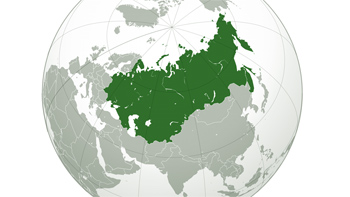The Soviet Union, officially known as the Union of Soviet Socialist Republics (USSR), was a socialist state that spanned much of Eurasia from its establishment in 1922 until its dissolution in 1991. Born from the ashes of the Russian Empire following the Bolshevik Revolution of 1917, the Soviet Union was a novel political and social experiment. Its formation marked the first time a nation attempted to create a society based on communist principles. The USSR's history is a complex tapestry of political, economic, and social upheavals, which played a pivotal role in shaping the 20th century.
Formation and Early Years
The formation of the Soviet Union was the culmination of a series of events that followed the Russian Revolution. The Bolshevik Party, led by Vladimir Lenin, overthrew the provisional government and sought to establish a communist state. In 1922, after a devastating civil war and the collapse of the Russian Empire, the USSR was officially formed, comprising Russia, Ukraine, Belarus, and the Transcaucasian Federation. The early years of the USSR were marked by Lenin's New Economic Policy (NEP), which introduced some market-oriented reforms to rebuild the war-torn economy.
Stalin's Regime and the Great Purge
Following Lenin's death in 1924, Joseph Stalin emerged as the leader of the Soviet Union. Stalin's rule was characterized by rapid industrialization, forced collectivization of agriculture, and a brutal repression of political dissent, culminating in the Great Purge of the late 1930s. Millions of people were persecuted, including members of the Communist Party, military leaders, and ordinary citizens. These purges significantly altered the fabric of Soviet society and politics, consolidating Stalin's authoritarian control over the state.
World War II and the Soviet Union
The Soviet Union played a crucial role in World War II, initially as a collaborator with Nazi Germany through the Molotov-Ribbentrop Pact of 1939. However, following Adolf Hitler's invasion of the USSR in 1941, the Soviets joined the Allies. The war on the Eastern Front was marked by its unprecedented brutality and was a turning point in the defeat of Nazi Germany. The victory significantly elevated the USSR's status as a world superpower but at a tremendous cost of lives and resources.
The Cold War Era
Post-World War II, the Soviet Union entered the Cold War, a period of geopolitical tension with the United States and its allies. This era was defined by nuclear arms races, ideological clashes, and proxy wars. The USSR expanded its influence in Eastern Europe, setting up communist governments and forming the Warsaw Pact in response to NATO. Domestically, the era saw a series of leadership changes, from Nikita Khrushchev's de-Stalinization policies to Leonid Brezhnev's period of stagnation.
Space Race and Technological Advancements
During the Cold War, the Soviet Union was also at the forefront of space exploration. The launch of Sputnik in 1957, the first artificial Earth satellite, and the first human, Yuri Gagarin, in space in 1961, were significant achievements that showcased the USSR's technological prowess. These milestones in the Space Race not only symbolized the Soviet Union's scientific capabilities but also its determination to assert its supremacy in the global arena.
Political and Economic Challenges
The later years of the Soviet Union were marked by significant political and economic challenges. The central planning economy, which had once facilitated rapid industrialization, now struggled to keep up with technological advancements and consumer demands. The Brezhnev era's political corruption and economic stagnation necessitated reforms. Mikhail Gorbachev's introduction of Perestroika (restructuring) and Glasnost (openness) in the 1980s aimed to revitalize the Soviet system, but instead, they exposed its fundamental weaknesses.
Decline and Dissolution
The increasing nationalistic movements within the constituent republics, economic troubles, and political unrest led to the weakening of the Soviet Union's central authority. The catastrophic nuclear accident at Chernobyl in 1986 further undermined the government's credibility. The fall of the Berlin Wall in 1989 symbolized the collapse of communist regimes across Eastern Europe, and by 1991, following a failed coup against Gorbachev, the Soviet Union formally dissolved into independent republics, marking the end of one of the most influential political entities of the 20th century.
The legacy of the Soviet Union is multifaceted, with significant impacts on global politics, economy, and culture. Its existence influenced the course of history in profound ways, from shaping the outcomes of World War II to defining the geopolitical dynamics of the Cold War. The Soviet experiment in creating a society based on communist principles had profound global ramifications, influencing revolutionary movements worldwide. Despite its dissolution, the impact of the Soviet Union's policies, ideologies, and conflicts continue to be felt, making its study crucial for understanding contemporary global affairs.
